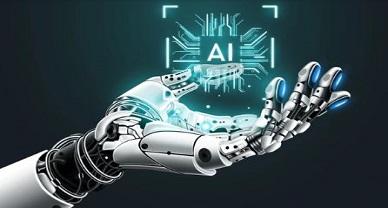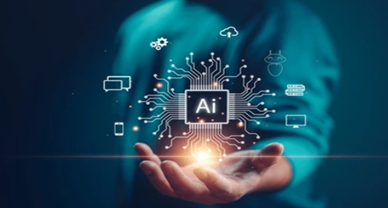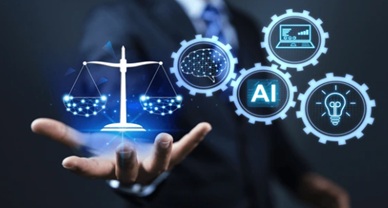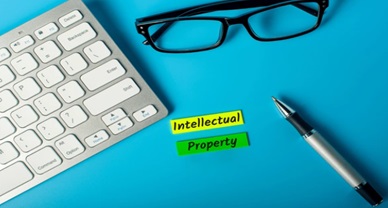Voice Cloning In the Digital Age: Navigating the Legal Maze of Ai
INTRODUCTION
Artificial intelligence (AI) is a transforming power at the dynamic junction of art and technology. AI not only redefines our visual knowledge by reproducing portraits and historical events but also spreads its impact into the audio sphere, therefore transforming how we see and relate to sound as it evolves. The rise of voice cloning technology has brought a fresh perspective and underlined the broad influence of artificial intelligence across many spheres, generating a swirl in the digital environment.
Using Deepfake technology and artificial intelligence, the music industry is experiencing the growth of these tools to recreate the voices of both late and live singers. Because of its ethical, technical, and legal ramifications, this intricate situation calls for thorough analysis. The legal implications of AI-generated voices that of vocalists remain a matter of debate. Ethically, it is viewed as a good thing if late singers’ vocals are preserved ethically with reasonable pay and family member consent. Like, recently, using artificial intelligence, the much-loved Indian artist AR Rahman recently induced waves in the music world by revitalizing the vocals of two well-known late singers. This was an aspect of his forthcoming work on “Thimiri Yezhuda”. The artist further emphasized that he had paid for all required payment for the singers’ voice algorithms and had acquired all the required permissions from their family members. The same is a perfect illustration of how artistic works and technology might coexist in the next few years.
However, there are major issues with violating the identity or likeness of artists, which might result in a day when ideal, reasonably priced, fast created AI-generated voices replace expert singers. For instance, the Dream track technologies developed by YouTube enable anybody with basic tools to produce original soundtracks in the voice of their preferred musician or artists.
Many celebrities, including actress Emma Watson, Prime Minister Narendra Modi, and famous chef Anthony Bourdain, have been victims of voice cloning and its usage in “Deep-Fake” videos. This scenario begs ethical and legal questions about the use of voices for misleading reasons as well as a global discussion on the boundaries of artificial intelligence, particularly with reference to voice cloning.
LEGAL FRAMEWORK OF THE VOICE CLONING
The “black-box” issue associated with artificial intelligence-generative voice makes it problematic for the programmer to foresee the result. Consequently, it is rather difficult to find the uniqueness of the voice, identify the author, and prove its fixation. Additionally, it is challenging to even establish the relationship between the author and the user of the copyright to determine the royalties’ obligations. As a result, the method of Voice Cloning begs important issues about its legality and whether it can be copyrighted as listeners attempt to distinguish between the voices.

Original works of authorship fixed in a physical medium of expression are safeguarded by Indian copyright law. According to R.G. Anand v. M/S. Delux Films & Ors[1], the “original” work not the ideas or discoveries can be copyrighted exclusively. Consequently, this raises a major issue of whether voice produced by artificial intelligence may be copyright?
The United States Court of Appeal decided in Midler v. Ford Motor Co[2]. that one cannot have copyright on a person’s voice. Although common law rights might be enforced as a voice is as unique as one’s face, the Court of Appeal decided that a voice is not copyrightable per such under the Copyright Act. Furthermore, even in Butler v. Target Corp[3], The United States District Court determined that although song words are copyrightable, the underlying voice is not.
Following a similar line, the Indian courts have decided that while under the Indian Copyright Law, 1957 it is difficult to trace the copyright of voice; however, the right to protection of voice and other personality rights may be awarded against any use for commercial benefits. In the recent case of Anil Kapoor vs Simply Life India & Ors[4]., The Delhi High Court issued an omnibus ex-parte injunction, prohibiting the concerned entities and the public from exploiting Anil Kapoor’s voice, image, and persona for commercial purposes without his consent. Even in the case of Amitabh Bachchan v. Rajat Nagi and Ors[5]The Delhi High Court issued an interim injunction to restrict the unauthorized use of Bollywood megastar Amitabh Bachchan’s name, picture, and voice.
Consequently, it is prudent to infer that, despite the complexity of the “voice” copyright, individuals have the right to assert the protection of their privacy and personality rights from any unauthorized exploitation.
THE NEED FOR A SPECIFIC LEGISLATIVE FRAMEWORK
The complexity brought by artificial intelligence in the music industry cannot be adequately addressed by the present legal system. Laws that acknowledge personality and publicity rights in the framework of personal attributes—including voice—have a great need. Laws must change to meet the special difficulties presented by artificial intelligence and guarantee protection of artists’ rights, both alive and dead. The suggested framework would be as follows:
- When employing AI-generated voices, always acknowledge the actual voice in music tracks, albums, commercials, and digital platforms.
- Require the inclusion of “disclaimers” whenever artificial intelligence-generated voices are used, therefore guaranteeing audience transparency.
- Make sure the person whose voice is used or from their estate for posthumous works obtains clear
- Give the licensing necessities for the use of the original singer’s voice, including use limitations, license dimension, and conditions of use.
- Develop a royalty payment mechanism given the economic success and consumption of AI-generated content.
CONCLUSION
Regarding artificial intelligence, particularly with relation to voice cloning, the legal scenario both in India as well as globally remains unsettled. With respect to that, along with legislators and AI developers, artists must tread cautiously as artificial intelligence continues to mix with the domains of creativity and legacy to guarantee that this great tool improves the artistic world without compromising the integrity and rights of the artists, past and present. Moreover, certain guidelines must be created to copyright the voice generated by the artificial intelligence by permission of the person whose voice is replicated.
One should have control over their identity, hence appropriate usage of artificial intelligence should be the ideal without stifling innovation and creativity. These advances show increasing understanding of the need for legal systems to control the use of artificial intelligence in creative sectors. Particularly with posthumous publications, cultural and artistic integrity should be given great thought; make sure they reflect the artists’ acknowledged beliefs, style and ideals. Hence, Voice protection ought to soon find a place in the copyright system.
Author:–Divya TM , in case of any queries please contact/write back to us at support@ipandlegalfilings.com or IP & Legal Filing.
REFERENCES
- Prachi Pat, AI Voice Enters the Copyright Regime: Proposal of a Three-part Framework, 34 Fordham Intell. Prop. Media & Ent.L.J.2024.
- https://www.theguardian.com/music/2020/apr/29/jay-z-files-takes-action-against-deepfakes-of-him-rapping-hamlet-and-billy-joel
- https://arstechnica.com/information-technology/2022/09/james-earl-jones-signed-darth-vader-voice-rights-to-disney-for-ai-use/#:~:text=During%20the%20creation%20of%20the%20Obi-Wan%20Kenobi%20TV,according%20to%20a%20Vanity%20Fair%20report%20published%20Friday
- https://ipwatchdog.com/2020/10/14/voices-copyrighting-deepfakes/id=126232/
[1] R.G. Anand v. M/S. Delux Films & Ors, AIR 1978 SC 1613
[2] Midler v Ford Motor Co. & Others (1988) 849 F.2d 460 (9th Cir)
[3] Butler v. Target Corporation, 323 F. Supp. 2d 1052
[4] Anil Kapoor v. Simply Life India & Ors, CS (COMM) 652/2023 (Del. HC Sept.20, 2023)
[5] Amitabh Bachchan v. Rajat Nagi and Or, CS (COMM) 819/2022


